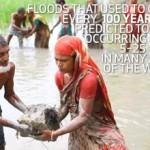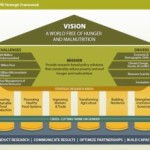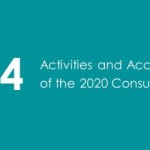“As the food system grows more fragile, climate change and increasingly volatile weather are reducing agricultural productivity globally… There is an urgent need for strategies to build resilience for the world’s farmers in order to adapt to these changing conditions to achieve both global food security and nutrition security.”
With this introduction, Dan Glickman, Co-chair of the Global Agricultural Development Initiative of the Chicago Council on Global Affairs, set the stage for the discussion on “Building Resilience in the Face of Climate Change and Weather Shocks.” In anticipation of the UN Climate Summit and preparation of the Sustainable Development Goals, panelists discussed the nature of the challenges posed by climate change to the global food system and highlighted key issues that need to be brought to policymakers’ attention ranging from investing in technological and policy innovations to communicating and funding science and research.
Rachel Kyte, Group Vice President and Special Envoy for Climate Change with the World Bank, warned, “We have a broken food system today… Climate change is simply a threat-intensifier; it is making what is already perilous even more difficult.” She emphasized that material leadership on climate change must be driven by a climate-smart approach through the economy, in a way that the economy produces lower carbon and becomes more resilient. For the global food system, climate-smart agriculture offers the potential for a triple win: increasing farmer incomes, improving nutrition, and reducing emissions.
Cynthia Rosenzweig, Senior Research Scientist with the Goddard Institute for Space Studies at Columbia University, further suggested that all agricultural investments and programs should explicitly link mitigation and adaptation components. She emphasized the need for funding to support scientists’ involvement throughout the life of programs to help policymakers understand the implications of projects not only in terms of the climate but also the biophysical and socioeconomic issues. She said, “There have been probably billions of dollars on the [development of] climate models… to clarify and understand those projections… Now we need that same effort for the impact sectors.”
The shocks caused by climate change and weather variability not only affect agricultural production but also the health and nutrition of populations. John McDermott, Director of the CGIAR Research Program on Agriculture for Nutrition and Health, observed that climate shocks are often closely correlated with food insecurity shocks, health crises, or conflicts. He called for responses that will build general resilience—such as health insurance, coping systems for communities, or social protection mechanisms—because “at the end of the day, [those] who are going to adapt are people and these populations really need some support, especially ones undergoing multiple shocks.”
Shenggen Fan, Director General of the International Food Policy Research Institute (IFPRI), noted that policy innovations are as important as technology innovations. For example, converting inefficient subsidies into smart income support for farmers could be critical to build resilience to climate and weather shocks. Moreover, he noted that the upcoming UN Climate Summit and the discussion of the post-2015 development agenda should be the same agenda, and one that is people-focused. He argued that this will require a systems approach, identifying and strengthening the weakest nodes to create “a global food system that is resilient, can adapt to climate change, can help to mitigate climate change, can use less water and energy to feed everybody in the world nutritiously, healthily.”
The panel built on resilience themes presented in the recent IFPRI 2020 Conference and the Chicago Council Symposium. The event was organized by IFPRI and the Chicago Council and took place on Thursday, September 11, 2014 at IFPRI Headquarters in Washington, DC. Click here to read more about the event and watch the full video below.
This blog was prepared by Laura Zseleczky, Research Analyst, Director General’s Office, IFPRI.






